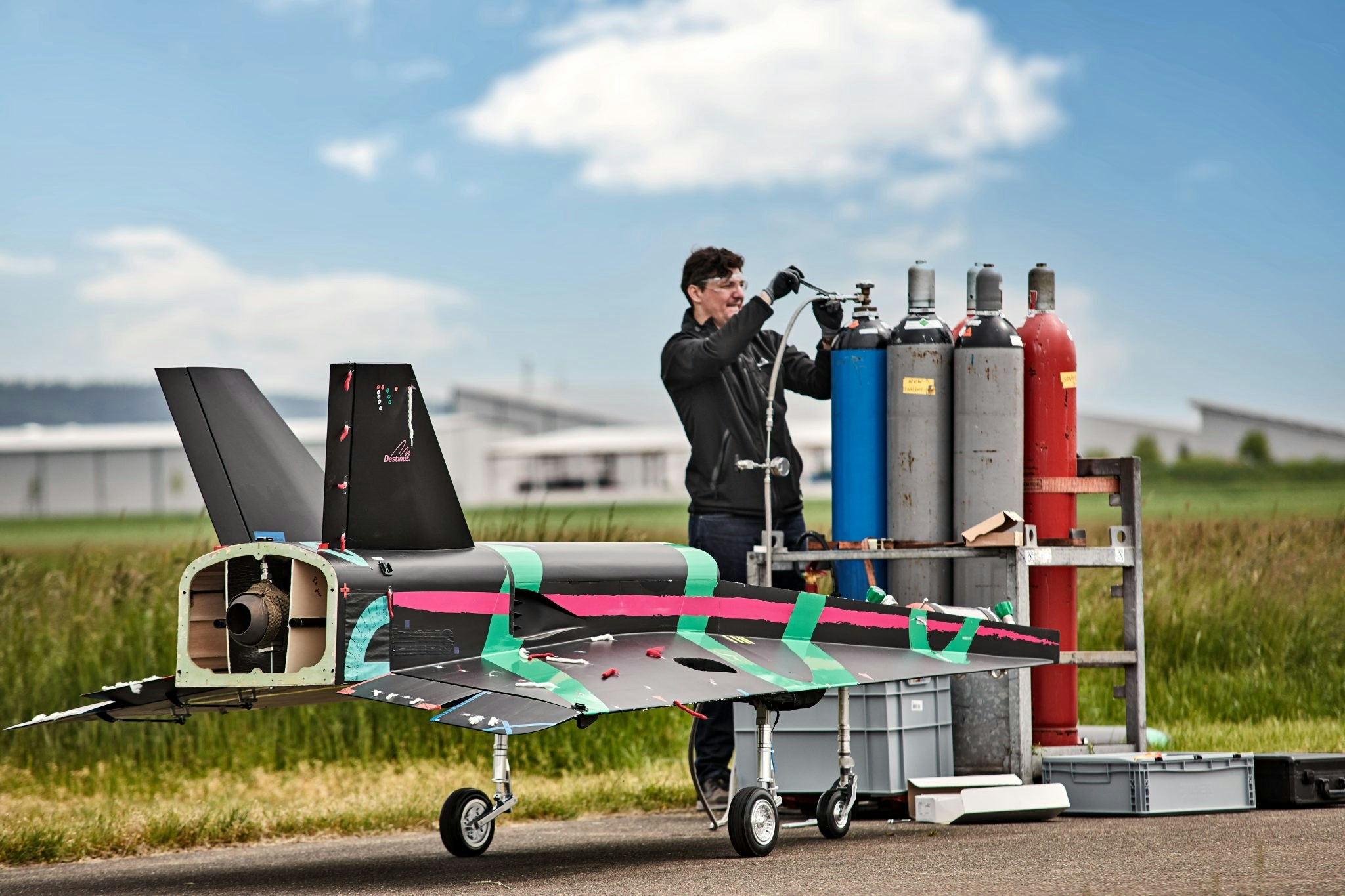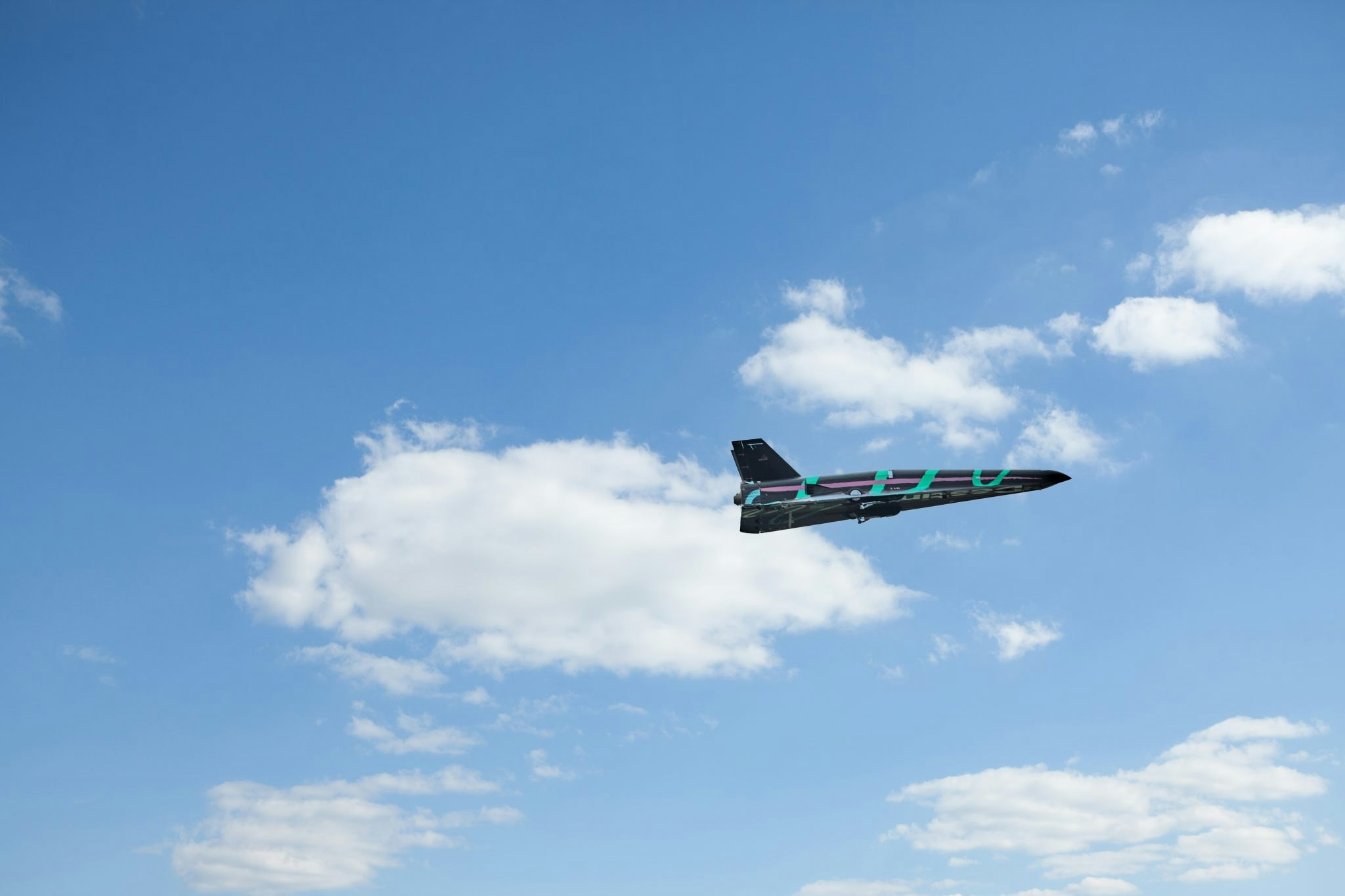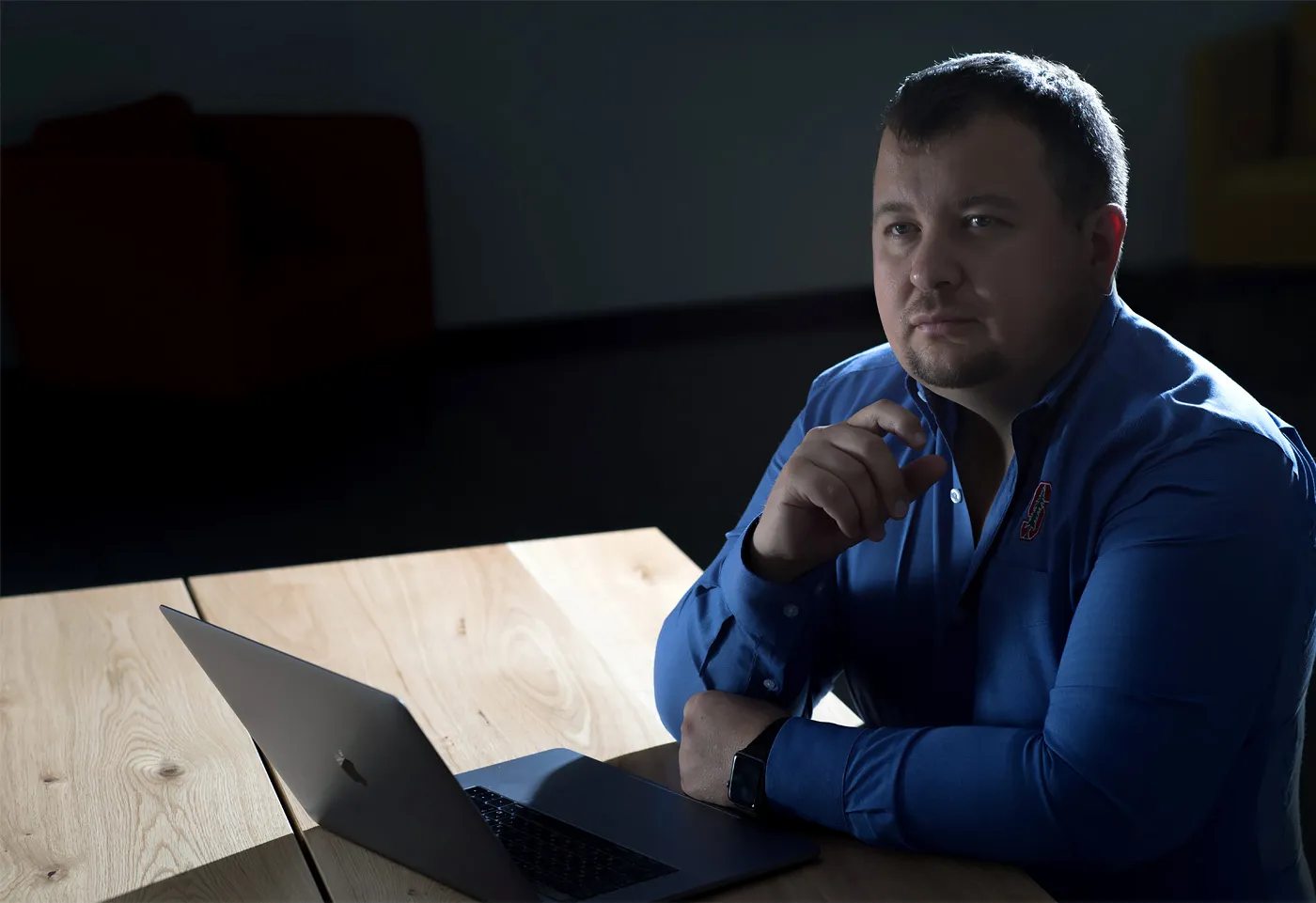Mikhail Kokorich’s career has nearly always been entwined with the geopolitics of the day — the Siberian-born founder has had to quit both the US and Russia during his entrepreneurial life.
But that hasn’t got in the way of him building a series of hugely ambitious companies. His current venture, Destinus, is working on sustainable supersonic planes which could, he says, travel up to five times the speed of sound.
“It should be the first supersonic hydrogen-powered plane in the history of aviation, which is… kinda cool,” Kokorich says. He joins our call from the back of a taxi in Switzerland — where he now lives — smiling into his phone camera as the car bumps along.
Satellites, household goods and anti-Putin protests
Kokorich was born near the Mongolian border in Siberia — his childhood home didn’t have running water and he spent weekends herding cattle. He studied physics and founded his first company, a mining explosives supplier, while he was still a student. Kokorich’s next venture, Chudodom, became one of the largest household goods chains in eastern Europe.
By then it was 2012 — a hopeful time for Russia, Kokorich says. “I started a private aerospace company, Dauria, in Russia. It was at a romantic time of the presidentship, when we were thinking that Russia would be part of the West,” he says.
Then the mood in Russia started to change. “First, it was difficult to make a business there, but second I was involved in oppositional activity,” he says. Kokorich claims that he's been involved in opposition movements in Russia for years. “I started my anti-Putin journey when I started Open Russia in Siberia when I was 24,” he says. Open Russia is a movement led by exiled businessman Mikhail Khodorkovsky.
“It was not easy for me to be in Russia so I moved to the US,” he says.
California calling
Kokorich spent 10 years in the US, where he set up space infrastructure startup Momentus, part of the 2018 Y Combinator cohort. California-based Momentus was focused on developing space tug boats, and raised $34m from investors.
It was then that Kokorich ran into more political hot water. The US government flagged national security concerns to the company about its founding team being Russian. “The US government decided ‘The guy is Russian, this is not good for the US,’ so they pushed me out, and I decided to come back to Europe,” says Kokorich. “It was the system trying to protect itself.”
Destinus
Which is how, in 2021, Kokorich found himself in Europe, founding Destinus to build supersonic planes. “In Europe it’s much easier, it’s more tolerant and everyone has experience of dealing with a bunch of nationalities,” he says.
Supersonic means faster than the speed of sound. Concorde, for example, was a supersonic plane — but since its last flight in 2003, there have been no supersonic aircraft in commercial service. Kokorich got interested in supersonic flight after reading about American engineer Kelly Johnson, famed for designing a plane in the 1960s, the SR71 Blackbird, that can fly three times faster than the speed of sound.

Destinus wants to build supersonic planes that run on hydrogen (planes like Blackbird run on conventional fuel). When hydrogen is burnt it produces water, significantly reducing the CO2 emissions of an aircraft. No plane has ever reached supersonic speed powered by hydrogen.
Destinus has a prototype craft which should be ready by the end of the year, and ready to start testing from early next year. That craft will fly at above the speed of sound and initially be powered by conventional fuel before transitioning to liquid hydrogen.
Other companies are also working on hydrogen-powered planes (albeit not aiming for the speeds which Destinus is hoping to reach). There’s FlyZero in the UK and ZeroAvia in the US, which is targeting a ten-seater craft by 2024. The main hurdle is the extremely high temperatures hydrogen reaches and the overheating that causes, as well as the amount of hydrogen needed to power a long-range aircraft, and where that can be stored on an aircraft.
Going hypersonic
Destinus doesn’t want to stop at supersonic. There’s another level: hypersonic flight, which means at least five times the speed of sound.
“We also hope to be the first company which will fly hypersonic using hydrogen,” says Kokorich. One aircraft, the Boeing X-51, reached hypersonic flight for 210 seconds in 2013 — the longest recorded period ever (though it wasn’t powered by hydrogen).
Hypersonic flight remains a strategic interest for countries like the US, China and Russia. Destinus faces competition from a number of startups working on hypersonic flight, including Hermeus, an Atlanta-based company which has been backed by the US Air Force and, interestingly, Sam Altman, the founder of ChatGPT-maker OpenAI.
“We're basically betting against a Sam Altman-funded company now,” says Kokorich. Hermeus is focused on military planes and is not working on hydrogen.
Destinus’s first plane won’t be manned, but Kokorich says it could use the same engines to build a plane for 25 people. “Eventually we want to build a big plane which can carry hundreds of people but that could take 15, 20 years,” he says.
Building hydrogen-powered aircraft is, in general, a mean feat. Destinus has recruited a strong board to try and get there: including former German vice-chancellor Philipp Rösler, former French space commander Michel Friedling and Pedro Duque, former minister for science and innovation in Spain.
Making the world smaller
Destinus has secured CHF50m (€50m) in funding so far. It’s already generating profits from selling hydrogen equipment and turbines to other companies — an idea Kokorich got from SpaceX, which sells Starlink data access for profit while it funds space exploration.
Destinus’s funding comes from US firm Liquid 2 Ventures, Texas-based Cathexis Ventures and Swiss firm Conny and Co, among others. Destinus also received a grant from the Spanish government to develop a research facility near Madrid focused on high speed hydrogen flight. Kokorich also received money from the Middle East, he says.

On the whole, however, Kokorich says he feels a resistance from European investors to back anything which could be construed as a defence investment. “European funds don’t want to invest in anything that could be used for defence, even when the Ukrainian war is happening and I believe it is morally wrong not to invest in these topics,” he says.
Although Destinus is less entangled in geopolitical dynamics than some of Kokorich’s previous ventures, the end ambition for the company is still somewhat political.
“We believe that in the future, with hypersonic planes, you’ll be able to fly all over the world. It’ll be the nations that allow freedom of travel which will benefit,” he says. “We hope that hypersonic flights will make the world smaller.” A noble ambition — but one that is still at least a decade away.




